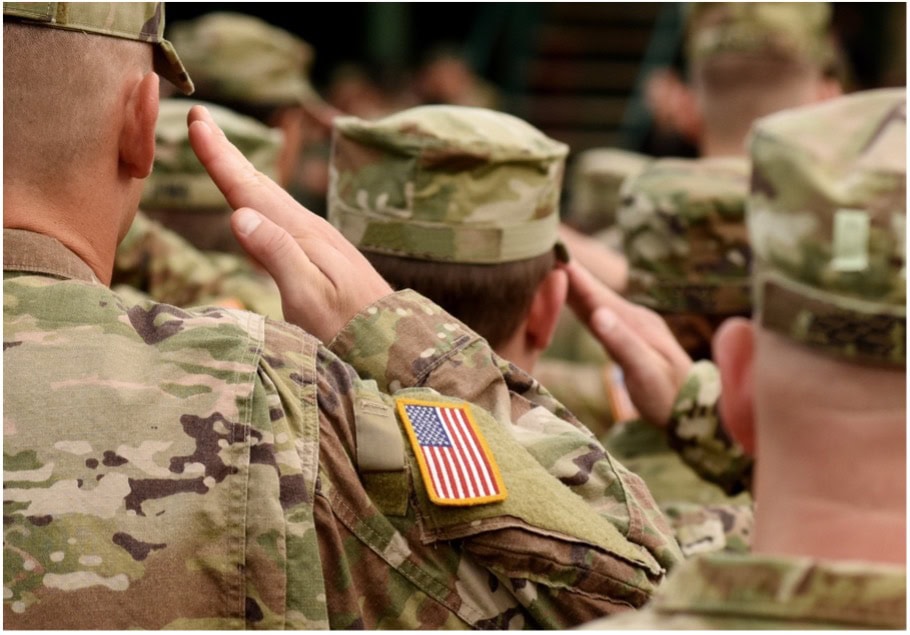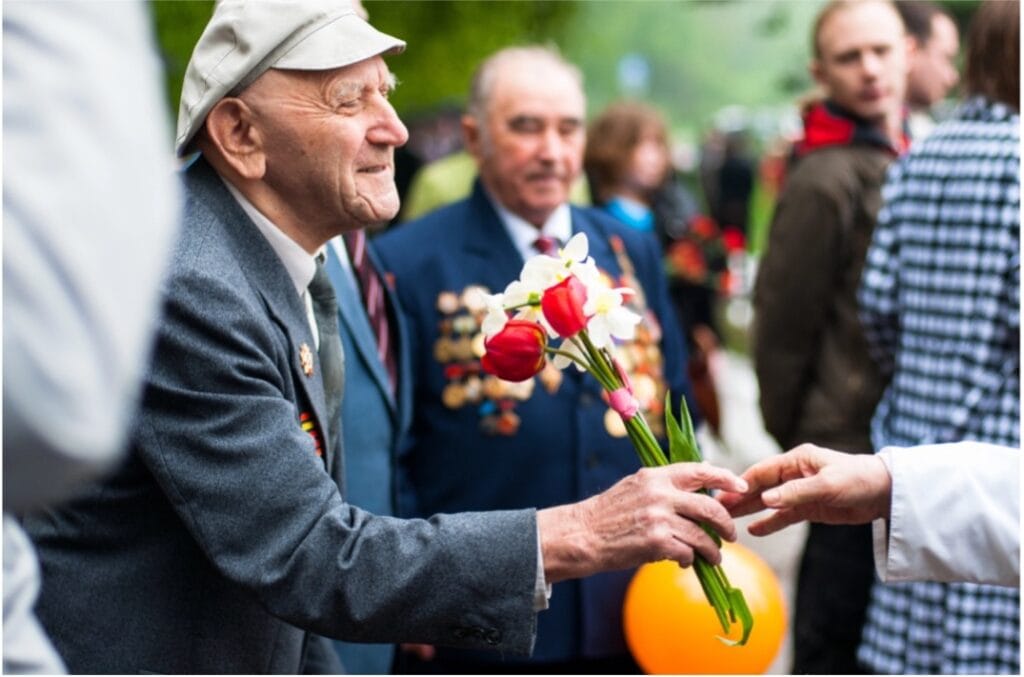Snellings Law PLLC Attorneys are Personal Injury Trial Lawyers
Warriors Wellness: Supporting Mental and Physical Health for Those Who Served
What You Need to Know:
- Returning veterans face significant challenges when transitioning from active duty to civilian life, including mental and physical injuries.
- Many of these injuries require treatment and even lifelong care. They can also profoundly impact a veteran's quality of life.
- There are numerous resources available to support veterans' physical and mental health needs.
Returning home from active duty is a significant milestone in the lives of our veterans. However, this transition can be both rewarding and challenging. After dedicating themselves to serving our country with bravery and sacrifice, veterans often face a period of readjustment as they return to civilian life.
This transition can be challenging. This journey is unique to each individual, shaped by their experiences during deployment and the support systems available upon return. Many veterans return home with physical injuries, some of which may require lifelong accommodations. Additionally, veterans frequently encounter a range of mental health issues stemming from their service. These issues affect the individual and ripple through their personal and professional lives.
At Snellings Law, we are deeply committed to advocacy and support for veterans. We recognize the profound impact that military service can have on individuals and their families. So, when our loved ones return home, it’s essential to understand the physical and mental challenges they face so that we can give them the proper support.

Combat Injuries: A Closer Look at Veterans' Physical Resilience
During active duty, military servicemen and women are subjected to dangers and horrors that most civilians can only imagine. It comes as no surprise that soldiers commonly sustain injuries from these dangerous situations.
Statistics show that over 53,000 U.S. soldiers were wounded in the U.S. military conflicts in Iraq and Afghanistan. In addition, there were over 100,00 others injured in the Korean War and over 300,000 wounded in the Vietnam War. Therefore, there are many American veterans living with injuries sustained in combat.
One of the most common combat injuries is open wounds, mostly from blasts. If the open wound becomes infected, is unable to heal, and endangers the serviceperson’s life, it may result in an amputation. Amputations and disfigurement may require lifelong care and accommodations, affecting the quality of life. To learn more about disfigurement, read our blog here.
Other common injuries veterans might experience in combat are internal injuries, such as spinal cord injuries. Broken bones, which include open and closed fractures, are also common. These injuries require immediate attention, or they may worsen. If they do worsen, they could cause disfigurement or require lifelong care as well.

Traumatic brain injuries are also prevalent for veterans. Flying debris, blasts, and explosives can cause objects to fly. These objects may impact the serviceperson’s head or cause them to fall, hitting their head. Traumatic brain injuries range from mild to severe. Severe TBIs are difficult to heal and require extended care. Many times, TBIs are an additional injury alongside other injuries, such as wounds to the face. Stressful situations, like active duty and secondary injuries, can hinder recovery and worsen TBIs.
To learn more about identifying a traumatic brain injury, watch our video:
Burn injuries are also prevalent in combat injuries. These injuries largely come from explosive devices. Burn injuries can be as bad as second or third-degree burns. When burn injuries are that severe, they may cause nerve damage or disfigurement, which can significantly impact quality of life.
As you can see, many military service members experience catastrophic injuries while on active duty. Once home, they now must transition back to everyday life while dealing with the aftermath of their injuries.
Unseen Wounds: Veterans and the Burden of Mental Trauma
As personal injury attorneys, we’ve seen many injury victims struggle through the process of healing from their injuries. It’s challenging to experience a traumatic incident, such as a car accident, and then have to go through the aftermath of recovering. For veterans who have served, experiencing active duty means experiencing prolonged trauma. These high-stress and horrifying situations they experience only worsen when they are injured.
Many veterans experience mental health issues when they return home. It’s hard to process and grapple with the traumatic events of combat while assimilating back into normal life. One of the most common mental health issues veterans experience is PTSD or post-traumatic stress disorder. The U.S. Department of Veterans Affairs reports that around 7% of all veterans will experience PTSD at some point in their lives. Studies also show higher statistics of veterans of the wars in Iraq and Afghanistan experiencing PTSD. However, this could be because PTSD has become less stigmatized, resulting in higher reporting and more veterans seeking medical care.
Additionally, depression and anxiety are common among veterans. These conditions can develop in stressful and traumatic situations. They can also accompany PTSD because of the painful memories that veterans experience. While anxiety and depression can negatively affect quality of life, they are also highly treatable.
Rehabilitation and Recovery: Supporting Veterans' Physical and Mental Health
For veterans returning home from active duty with injuries, there are many resources to help support the transition back to civilian life. The U.S. Department of Veterans Affairs (VA) provides health care for veterans. This care covers treatment for illnesses and injuries, preventative care, and care to improve function and quality of life. For those exiting active duty, call the VA at 877-222-8387 to get started. Additionally, programs like Disabled American Veterans (DAV) and theWounded Warrior Project provide resources and services that help veterans get the long-term care they need.
While seeking treatment for mental health issues is not as stigmatized as it has been in the past, there are still many veterans who do not seek treatment for their mental health. Unfortunately, some veterans may turn to substance abuse to cope with what they have experienced. Statistically, substance abuse is not uncommon among veterans, and many may use it as a way to self-treat mental health issues like PTSD.

The good news is that there are many avenues available to treat mental health issues in healthy, safe ways. While a medical provider may prescribe certain medications to help with symptoms of mental health, there are many types of evidence-based therapies that are effective in treating mental health issues as well. Two specific cognitive behavioral therapies (CBT) that are effective for treating PTSD are cognitive processing therapy (CPT) and prolonged exposure therapy (PE). CPT can reduce PTSD symptoms in the long term by helping veterans work through and challenge how they view their trauma. Prolonged exposure (PE) can help veterans face their trauma and overcome the fear tied to it. Additionally, eye movement desensitization and reprocessing (EDMR) is also an effective therapy for veterans with PTSD. EDMR uses outside stimuli to help combat the emotions that come from traumatic memories.
Cognitive-behavioral therapies are helpful for treating depression as well. Acceptance and commitment therapy (ACT)can help patients stop avoiding their thoughts and emotions. It can give patients the tools to accept these feelings and move forward. Interpersonal psychotherapy (IPT) allows veterans to talk through their depression symptoms. Problem-Solving Therapy (PST) helps veterans come up with strategies to combat symptoms of depression and anxiety. Behavioral activation can help veterans identify how their behaviors affect their moods and develop strategies to cope with symptoms.
There are many resources available to veterans who want to seek mental health treatment. The Wounded Warriors Projecthas mental health and counseling resources available. There are also avenues through the VA to connect with mental health treatment.
Snellings Law Cares About Veterans' Health
At Snellings Law, we care about the health and well-being of everyone in our community, including our veterans. We know the toll that traumatic events and injuries can take on a person. We are dedicated to making a difference for injury victims in the community and advocating for those who have served our country with honor and courage.
If you or a loved one have been injured due to someone else’s negligence, please get in touch with our office to schedule a free strategy session. Our team is here to guide you through the personal injury process and ensure you get the care you deserve. Call us today at (214) 387-0387 to schedule.

Beyond legal support, we encourage you to explore resources and strategies to promote your own mental and physical wellness. Whether it’s seeking counseling for PTSD, adopting healthy lifestyle habits, or connecting with support groups, taking proactive steps can make a significant difference in your quality of life. Remember, you are not alone—a community of support is ready to help you thrive.
We hope you join us in honoring and supporting our veterans by staying informed and advocating for positive change. Together, we can ensure that every veteran receives the respect, care, and support they earned through their service to our nation.
How it works:
- Call us now or give us your basic information in the Free Strategy Session box
- If your case is something we cannot help you with, we will do our best to get you the information of someone who can.
- If we can potentially help you, we will schedule a Free Strategy Session
There is zero obligation. We want all injury victims to understand their rights and the process.
After your Free Strategy Session, you will understand where insurance companies can set traps for you and what needs to be done to avoid these traps. You will also understand the personal injury process as well as how we can help, or if you need the help of an attorney. The strategy session typically will have one of three outcomes. You:
- Decide to move forward with our law firm.
- Decide to think about it, and we will be available to answer your questions.
- Say, “I’ve got this,” and decide you do not need an attorney.
Again, there is zero obligation and you will be informed and understand your rights and the process. We want to arm you with knowledge to avoid the traps insurance companies set to harm your claim.

